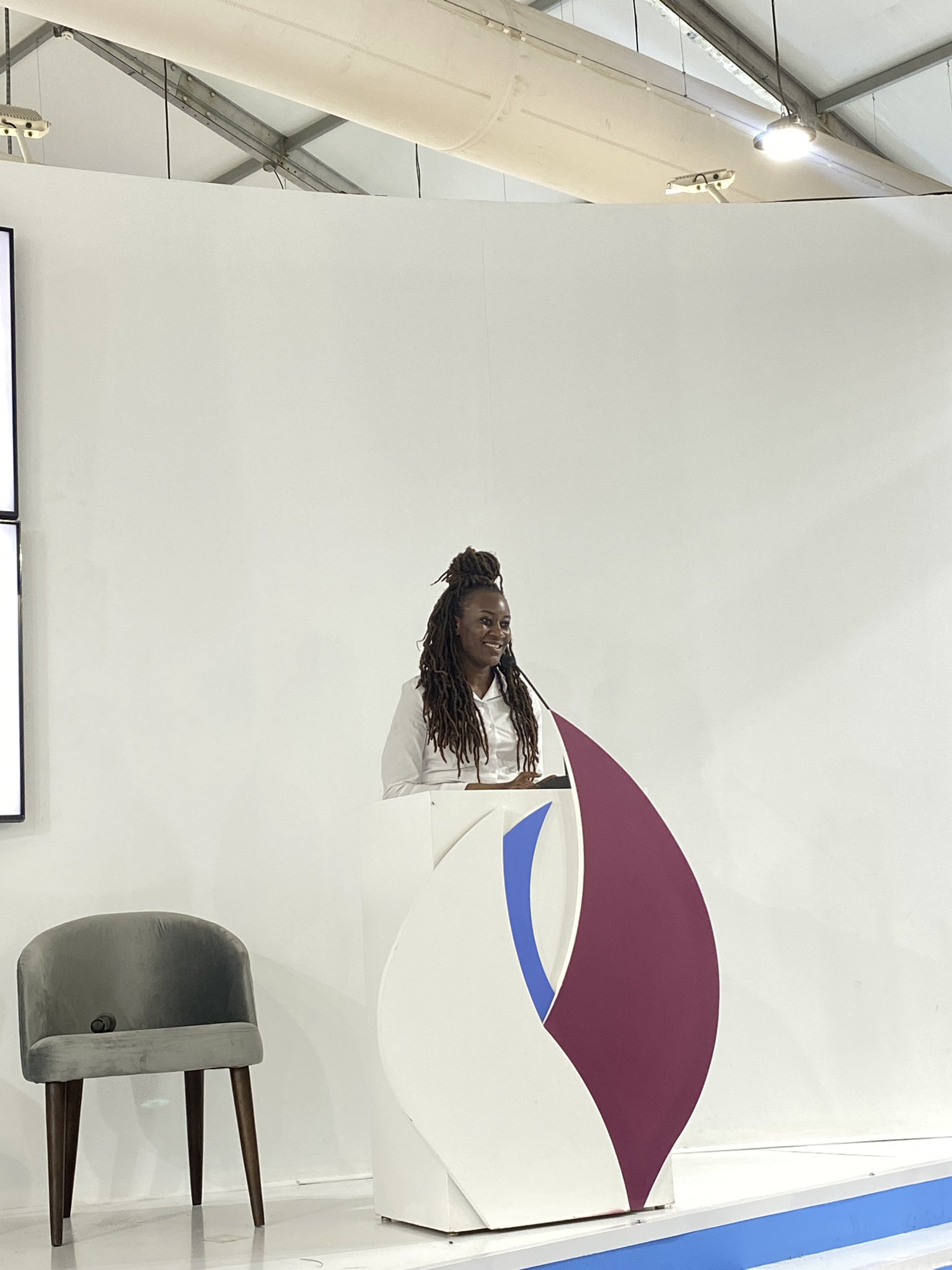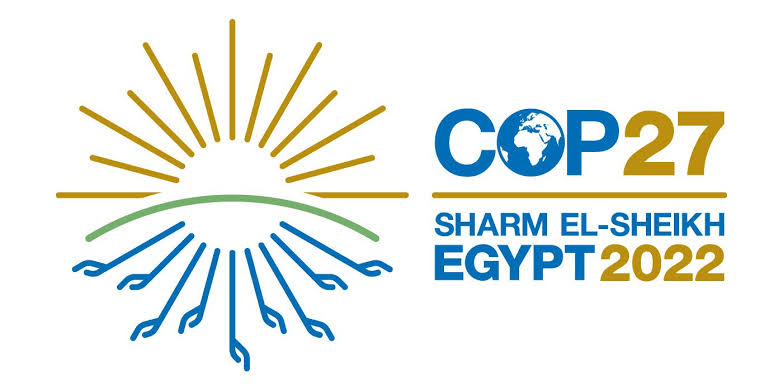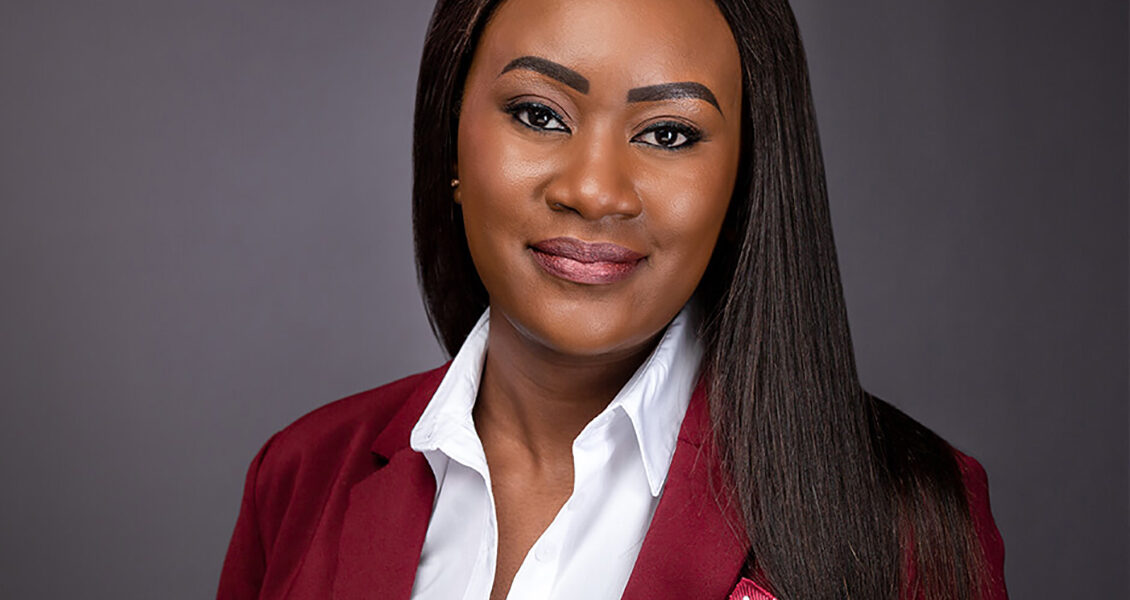The annual United Nations Climate Conference COP has this year been dubbed ‘Africa’s COP27’, and under her leadership, the African Union Commission Youth Envoy Chido Cleopatra Mpemba has ensured African youths are not left behind.
From leading the first ever-African youth delegation to attend the summit, to launching a 30-point Youth Declaration on climate mobility, adaptation, policy and finance, Chido is ensuring the youths take their seat at the table at the ongoing annual climate summit in Sharm El Sheikh, Egypt and ensuring their voices are represented and heard.
Further more, to mark Africa Day 2022, Chido hosted an African Union Youth Meetup event on the sidelines of COP27 in Sharm El Sheikh, Egypt, last week, where young people from different parts of the continent got to connect and share their climate initiatives and experiences.
She talked to GLIM about COP27, climate mobility and the youth humanitarian crisis, among other things.

GLIM: This is the first time an African youth delegation is attending COP, congratulations. What exciting youths projects will you be launching here?
CHIDO: I think it’s been very exciting to see a lot of projects being launched here and seeing young people winning when it comes to different innovation challenges, like the African Youth Adaptation Challenge awards. My office has worked very closely with partners to ensure that we not only have young people represented, and coming for COP27 but also when they share their ideas, innovations and projects they are working on across the continent, that we also come in to ensure that they are accelerated through the support that we get from partners. Bosch Stiftung just announced they are giving an additional 150 million Euros to ensure that we extend opportunities and create an enabling environment for young people when it comes to innovations. In addition, the African development bank, also announced at the awards that they are going to invest more towards youth innovation. Even at the Head of States Summit, the African Development Bank president Akinwumi Adesina indicated that they will be soon launching the Youth Investment banks and as the African Union Commission we welcome this and are very ready to ensure that within my role as the African Union Youth Envoy, we advocate the member states and have them on board, so that when these funds come, they go towards the young people and youth are the ones that will be running the banks and the funds. But most importantly, we also need to build their capacities, for it goes beyond just providing them with the funds to accelerate the innovations.
GLIM: African women and youths are greatly affected by climate change mobility. How are you making sure this issue is addressed?
CHIDO: Honestly, I get touched when a young person is experiencing that because I am a young person myself. Getting that opportunity to use my voice at the decision making table, in every humanitarian summit that happens, we get together as young people and human displacements is one of the issues we have been discussing. We recommended the member states to look into it and see how we can implement the recommendations to mitigate climate displacement. But this also needs funding, resources, capacity building and the like. It’s not just member states; we have financial Institutions, development organisations, and the young people themselves. Together, we can move that into implementation by mobilizing ourselves in our various communities, through even NGO-led organisations and civil societies and ensure that it’s not just speeches but concrete actions.
GLIM: As youth envoy, what are your demands and expectations for this COP27?
CHIDO: What has been negotiated at COP27 has been on loss and damage, and climate adaptability. Because the youths are the largest demographic in Africa, that affects us the most, yet at the same time, there’s less funding that is going into this. So what I am hoping for is that by the end of this COP 27, we go from less speech to more concrete actions, and see more investments when it comes to climate adaptability and loss and damage.
GLIM: You took over office as the AU Youth Envoy in November last year. How have you since bridged the gap between the AU and the youths?
CHIDO: When I got appointed in my role as the African Commission Youth Envoy, the first thing that I did was embark on a listening tour to raise more awareness about what the African Union was doing, but most importantly get to hear from young people themselves in terms of what they expect from the African Union. My efforts are also trying to ensure that our member states are putting bold in the works that we are executing on their behalf.
I will continue with the listening tour next year, by visiting various communities every quarter, so that I can not only bring back their voice to the decision-making table but also have them come along. For the next African Union Heads of State summit that is going to happen in 2023, we are going to ensure that we the young people are on the table. We shall also have a youth forum that will run in parallel with the African Union summit. So, come February, we look forward to more youth engagements, more youths on the table and more youths coming to ensure that they understand the work done at the African Union and they also get to be part of the Agenda 2023 journey.
GLIM: How do you think youths can take part in policy formulation and implementation?
CHIDO: Youths can be part of policy formulation and implementation through various ways, starting from government structures. It means we need to ensure that they are incorporated, for example, we have been lobbying for every country to have a youths advisor to the president, and we have seen it already happen in 4 countries including Namibia and Ghana. We also have a youth who is seated at the African Union headquarters. Besides the government structures, we need to look at the grass root level. We have national youth councils, and community leaders we collaborate with, we continue building their capacities and through doing that, we can influence policy implementation.
Interview by NilaYasmin Faisal
This article was produced as part of the ‘COP27 AFRICAN YOUTH VOICES’ serie, a collaboration between Rwanda Post, GLIM and L’Écologiste to amplify youth initiatives and voices to mark COP27, courtesy of the African Union (AU) Media Fellowship.


